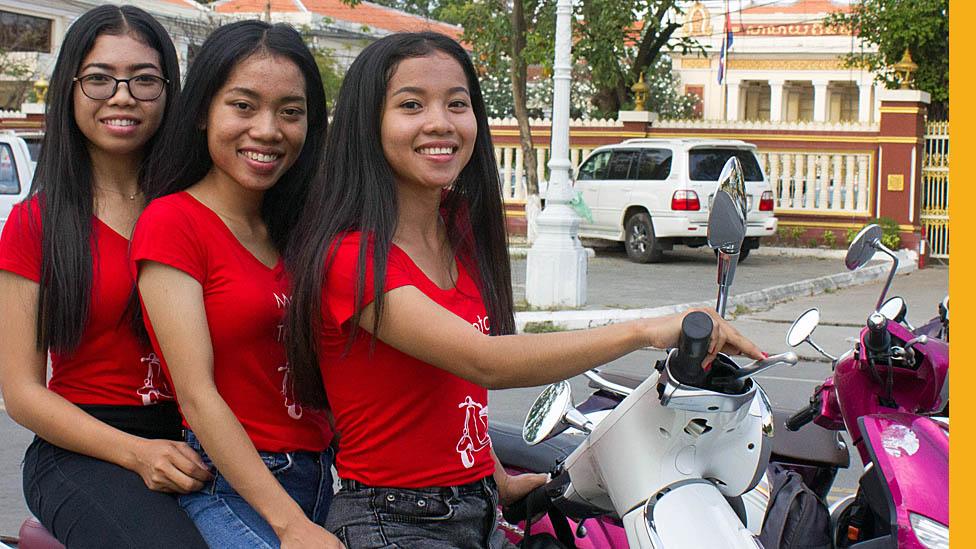Hanoi plan to ban motorbikes by 2030 to combat pollution
- Published
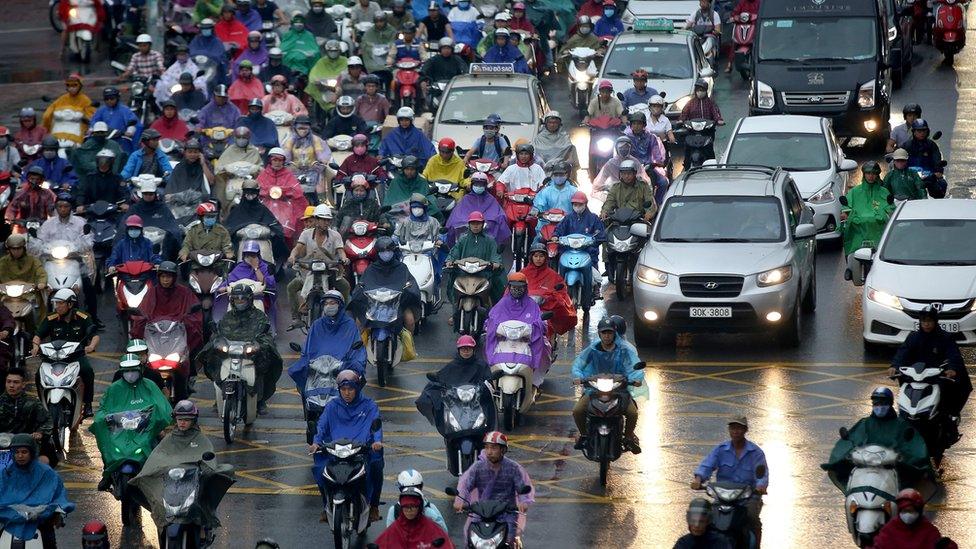
Will the residents of Hanoi be able to give up their motorbikes?
Hanoi - a city of five million motorbikes - is planning on banning the popular two-wheeled transport by 2030.
The city council voted for the ban almost unanimously, hoping to unclog roads and reduce soaring levels of pollution.
The council has also promised to increase public transport so that half the population are using it by 2030, instead of the current 12%.
But some residents think it very unlikely the bikes will go for good.
Council officials decided to put "immediate management measures" in place after a report found the number of motorbikes in Hanoi was set to grow at an "alarming" rate. Some studies suggest there are already as many as 2,500 motorbikes per kilometre.
According to the non-governmental group GreenID, the city recorded 282 days of "excessive" levels of PM2.5, which is harmful to human health, last year.
But despite this, resident Ngo Ngoc Trai told the BBC he did not think the plan would work.
"The city is too crowded while public transport hardly exists," he said. "For example, there is no underground system in Vietnam. Only in June did Hanoi pilot the first two-storey bus in some routes.
"Looking back at the history, I don't trust any long-term plan here. The government used to say Vietnam would become an industrialised country by 2020. Now everyone realises this plan has failed."
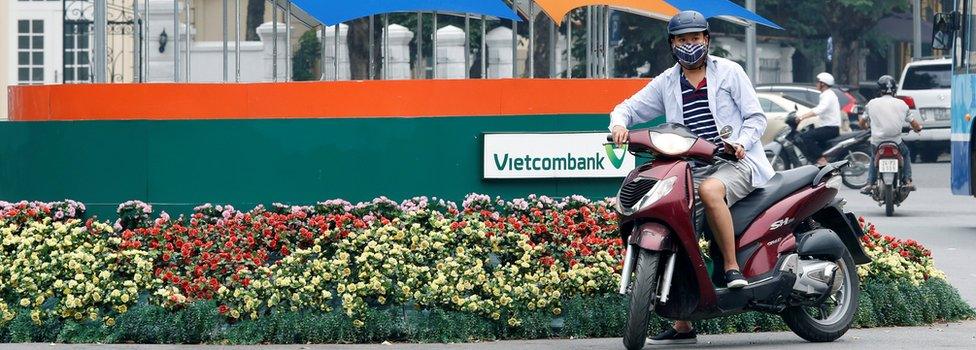
BBC Vietnamese journalist Ha Mi in London relies on a motorbike to get around when she returns to her home town, and knows how vital they are for everyday life. Indeed, even those with cars often use a motorbike to reach their vehicle due to the lack of parking in the city.
Asked if it will work, she shakes her head: she cannot imagine Hanoi's residents going along with the plans.
"When the government first said people have to use helmets people did not do it, so they had to scrap it," she said. Even now they have cracked down on helmet wearing, people still flout the rules, refusing to do them up properly, or wearing them like caps.
But in the end though, whether the ban comes into force or not may come down to something more undefined.
"I cannot imagine a Hanoi without motorbikes," she said.
The ban does not include cars, which, as wages rise, are an increasingly popular choice in Vietnam.
But they still lag behind their two-wheeled rivals. A report in the Thanh Nien News, external found there were 750 new cars sold in Vietnam a day in the first half of 2016, compared to 8,000 new bikes a day.
- Published6 March 2013
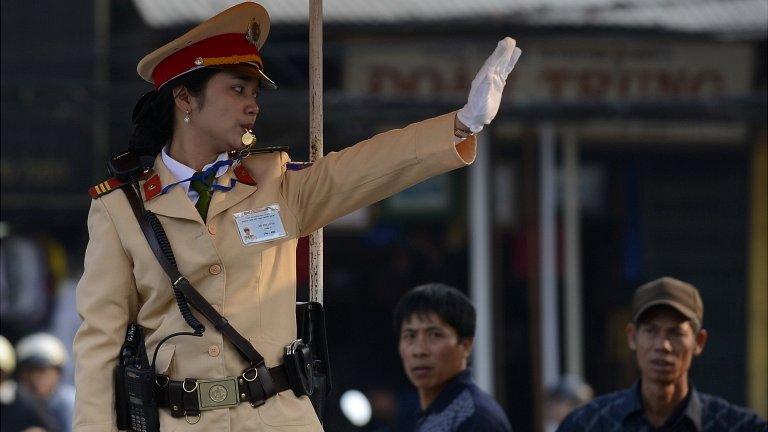
- Published29 June 2016
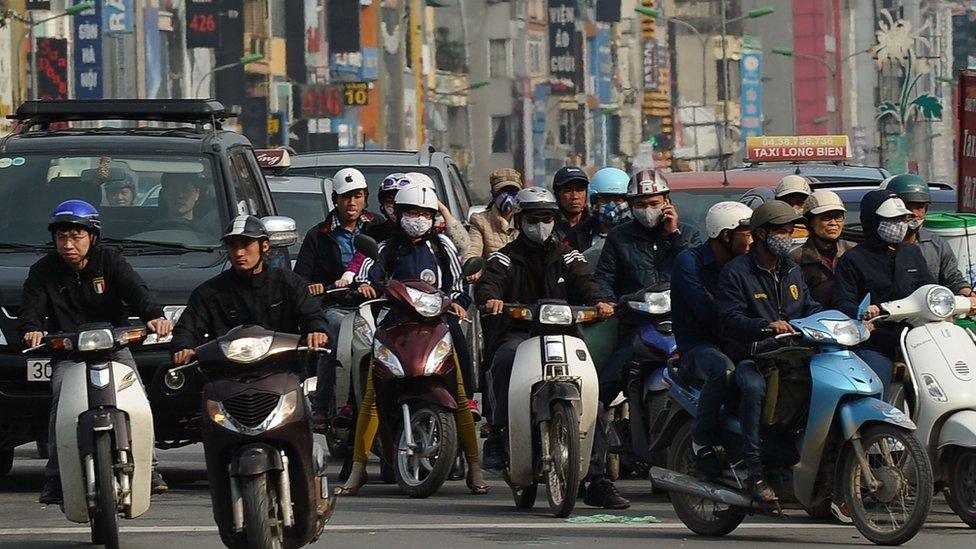
- Published5 April 2016
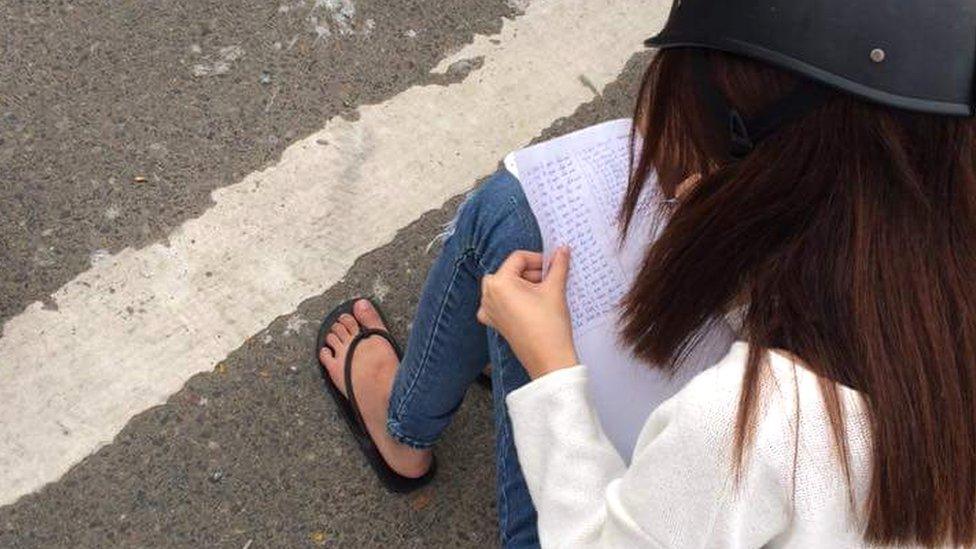
- Published30 May 2017

- Published15 March 2017

- Published5 February 2017
